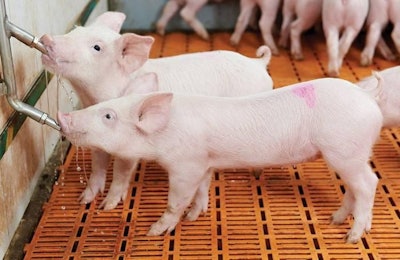
A pig farmer in Northern Ireland was convicted of failing to keep pig herd records and not complying with herd restriction notice, according to the Department of Agriculture, Environment and Rural Affairs (DEARA) of Northern Ireland.
James Marmion of County Down was prosecuted under laws designed to enhance farm biosecurity and restrict the flow of disease. He pleaded guilty and was fined GBP400 (US$520). The Newry Magistrates Court handed down the conviction on August 15.
There was no particular pig disease involved in this case, according to James Irwin, senior press officer for DEARA. The main issues were illegal pig movements and lack of proper records. These issues were discovered by the Veterinary Service Enforcement Branch during an audit.
Marmion’s herd consisted of 36 animals at the time of inspection, said Irwin in an email.
Pig movement laws
In 2012, the UK implemented an electronic pig movement system, Pigs Records, Identification and Movement Orders 2011. To be legal and comply with the new system, all pig movements must be reported by producers through the eAML2 system, either by producers setting up the movement themselves online, or by contacting the eAML2 Bureau Service.
Controlling pig disease with prevention chain approach
The infection/prevention chain concept brings together new and existing knowledge in swine disease management, connecting epidemiological events between the different production phases.
Pig production has responded to the challenge of increased global demand for pork by a process of consolidation and increased size to capture the benefits of economies of scale. Over the last 25 years, the swine industry has evolved in order to increase production performance, health and animal well-being towards age-segregated or multiple site production models.
















